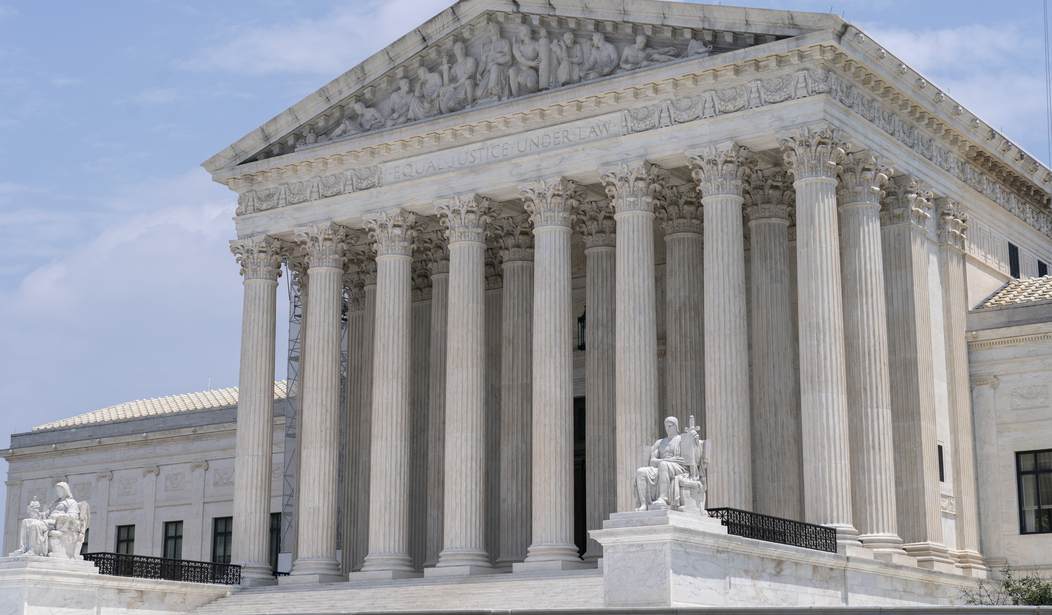The case US. vs. Rahimi is going to the Supreme Court. This is an interesting case, but perhaps more interesting is how this is being framed throughout the media.
There are things about this case that I and many others wish were quite different. In particular, I wish the individual in question weren’t such a bad person, at least on paper.
I mean, Rahimi isn’t exactly the poster boy for gun ownership, if you know what I mean.
So, it puts us in a bit of a jam.
But the media seems to think the jam the gun rights side finds itself in is very different.
WASHINGTON – Zackey Rahimi’s legal troubles began in 2019 when he pulled out a gun and fired at a passerby who witnessed him dragging his girlfriend through a parking lot.
Months later, after getting into an accident, Rahimi repeatedly shot at the other driver, court records show. A year later, he threatened another woman with a gun and was charged with aggravated assault. In 2021, he fired several times into the air after a friend’s credit card was declined at a burger joint near Fort Worth, Texas.
Rahimi’s case is now before the Supreme Court in a blockbuster Second Amendment challenge that may prove especially thorny for the gun lobby and the court’s conservative wing. That’s because Rahimi is challenging his conviction under a federal law that bars Americans who are subject to restraining orders from owning guns.
“The facts of this case make it really unpalatable for them to have to stand up and say, ‘No, we believe that domestic abusers have a Second Amendment right to their firearms,'” said Nick Suplina, senior vice president for law and policy at Everytown for Gun Safety. “Politically speaking, that’s deeply unpopular.”
It’s funny because we know where they stand, but Everytown doesn’t seem to understand our point of view.
My personal take is that if domestic abusers are so bad, and I happen to think they are, why isn’t domestic abuse a felony charge in the first place? That would make them prohibited for a violent felony and one would find little support for changing the law to allow them to lawfully buy firearms.
But this isn’t about domestic abuse. It’s about whether a domestic violence restraining order–something often granted with little to no evidence of abuse or even a threat of abuse, just on the possibility someone might be abusive–is sufficient cause to take away someone’s Second Amendment rights.
The problem, however, is that there’s little pushback on the characterization that this is about domestic abusers. Often because the media’s favorite “Second Amendment experts” claim otherwise.
“In some ways Rahimi … is the best case for gun safety advocates,” said Adam Winkler, a law professor at UCLA and a Second Amendment expert. “The justices are going to be understandably reluctant to say that domestic abusers have a right under the Second Amendment to possess firearms.”
Federal law also generally prohibits people from possessing firearms if they have been convicted of a felony, are in the country illegally or have been dishonorably discharged from the military. In 2021, the Supreme Court let stand a series of lower court rulings that prohibited people convicted of driving under the influence, making false statements on tax returns and selling counterfeit cassette tapes from owning a gun.
Not mentioned in that last paragraph is that there are two prohibitions involved here.
This case is just about the restraining order, not domestic abusers in general, meaning those actually convicted of domestic abuse.
See, gun control groups are chomping at the bit to frame Rahimi as about domestic violence and the media is enabling this in a lot of ways. They’re letting this argument stand without any pushback.
But, at its core, it’s not. It’s about whether a restraining order the likes of which are part of a whole lot of divorce proceedings is sufficient cause to strip someone’s rights away.
These aren’t about violence or threats of violence, only that someone says they think there’s a chance someone else might get violent. Judges issue these with little evidence because the risk is high if they get it wrong.
That’s not grounds for losing your rights. I’m sorry, but it’s not.
And the media isn’t going to tell people about that.








